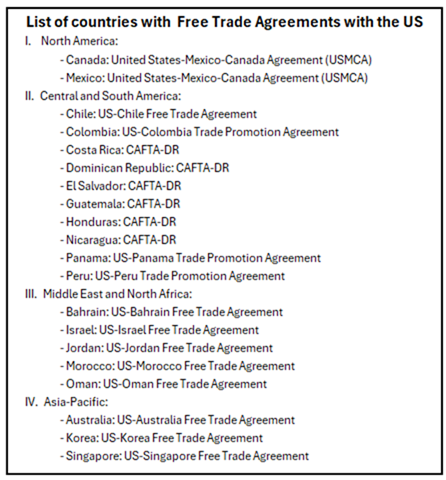U.S. tariff regulations are evolving quickly, and businesses need to be proactive. At this point, there’s no clear timeline for when things will settle — it could be months or longer. One effective way to stay ahead is by exploring strategies that reduce import costs and improve duty management. Here are some proven methods that can help your business save money and remain competitive.
Duty Reduction Strategies
1. First Sale Doctrine: Duties are calculated based on the original manufacturer’s price rather than the intermediary’s. This can significantly lower duty costs.
2. Foreign Trade Zones (FTZs): FTZs allow you to delay or avoid duties on imported goods. You only pay duties when goods are sold domestically — or not at all if the goods are re-exported.
3. Duty Drawback Programs: These programs provide refunds on duties paid for goods that are later exported or destroyed.
4. Free Trade Agreements (FTAs): Leverage agreements with U.S. trading partners to reduce or eliminate duties on qualifying goods. (See table below for eligible countries.)
5. HTS Classification Review: Ensure all products are classified correctly under the Harmonized Tariff Schedule to avoid overpaying duties due to misclassification.
6. Change Incoterms to DDP (Delivered Duty Paid): Having the seller pay duties and taxes can lower the declared value of the import, potentially reducing duty payments.
7. Alternate Sourcing: Identify new suppliers in countries with more favorable trade agreements or lower tariff rates.
Tip: WOWL can help you manage supplier documentation, order flows, and integrate them seamlessly into your logistics network.
Mixing and Matching Strategies
- Combine multiple strategies to maximize savings and compliance.
- Maintain detailed records and adhere to Customs regulations.
- Many of these strategies work better when used together. Requirements often overlap, creating efficiencies.
Additional Tips
• Support Your Suppliers:
Provide materials, tools, or equipment to suppliers to help them reduce production costs—benefiting both sides of the relationship.
• Record Keeping: Maintain detailed, accurate documentation for all imports, exports, and duty payments to ensure compliance and support refund claims.
Conclusion
These programs require thoughtful planning, professional guidance, and ongoing compliance efforts. However, when implemented effectively, duty reduction strategies can lead to substantial cost savings and improved operational efficiency. By combining and tailoring these methods to fit your specific needs, your business can enhance its global trade performance and remain competitive in a volatile trade environment.

Disclaimer
All strategies discussed must be implemented in compliance with U.S. Customs and international trade laws. Companies should consult with legal and customs professionals to ensure proper setup and adherence. Regular audits, meticulous recordkeeping, and continuous compliance reviews are essential.





